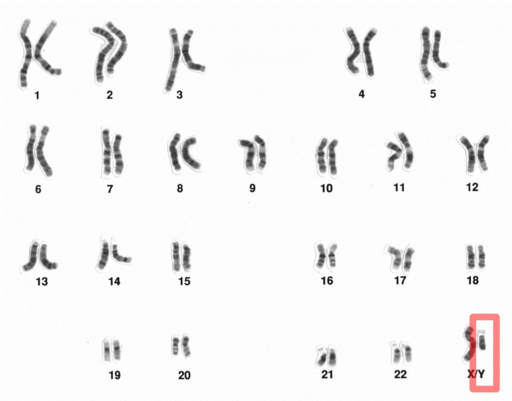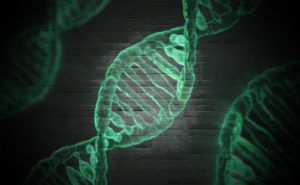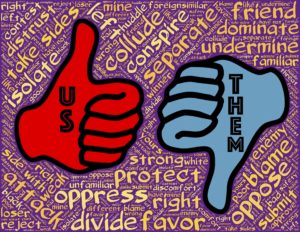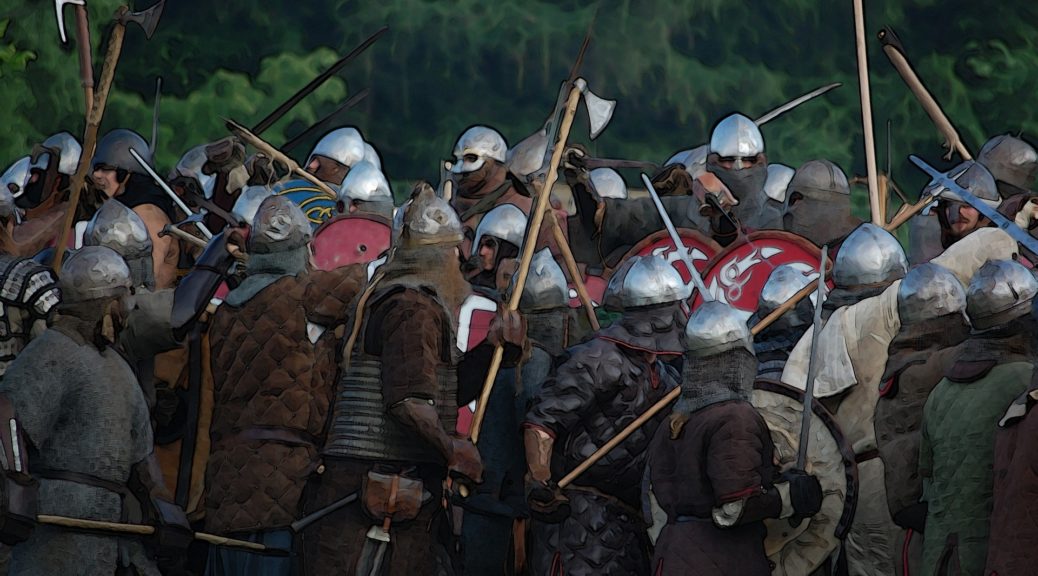Why Tribalism Could Doom the Human Race
I found an interesting article that shows that tribalism and war is not a healthy thing for the male population — and not in the way you think. So, being the Rational Heathen, I’m going to discuss the future of our race, that is Homo sapiens, and how our ancestors may have fucked things up to the point where if we continue this behavior, it could end our species.
Y-Chromosomes and Male Definitions
Now, before anyone gets their panties in a wad, for the sake of simplicity, I’m using the word “male” to describe someone with a Y-chromosome. Likewise, I’m using the term “female” for those who have two X-chromosomes. I’m not going to try to use the politically correct words because, quite frankly, I don’t know what the flavor of the week is. Furthermore, it avoids confusion for those who haven’t followed along. This isn’t saying that the transgendered folks aren’t important, but for the sake of the conversation, I am talking about is heterogeneous pairings that produce offspring. Savvy? So, let’s talk tribalism.
Some Basic Biology (for those who fell asleep in Biology 101)
For those who don’t know or didn’t pay attention to sex ed, males have a pair of Y and X-chromosomes which confer their sex. Females have a pair of X-chromosomes. When a male produces sperm, his sperm contains half his chromosomes including either an X or a Y chromosome. (I’m not going into the extra chromosomes which sometimes occur.) The female’s ovaries produce eggs, each with half the chromosomes, and one X-chromosome. (Again, I’m talking the basic set up here.)
So, if an egg gets fertilized, it only has one copy of the Y-chromosome to work with. With females, the offspring will have an X-chromosome from the father and one from the mother. If the offspring is male and has children, any male will have the same Y-chromosome that his father and his grandfather had. Females, on the other hand, have a bigger chance at diversity as the X-chromosomes can get shuffled up with each generation.
 Tribalism and the Y-Chromosome Bottleneck
Tribalism and the Y-Chromosome Bottleneck
About 7000 years ago, human diversity took a huge drop, especially along male lines. Called the Y-chromosome bottleneck, it appeared as though there were one human male for every 17 human females. We know this through our own DNA and DNA from ancestors; bones. Scientists have been trying to explain why there was, and still is, so little Y-chromosome diversity, even though males and females are roughly equal in number. Scientists think there were several factors, of which tribalism and clan hierarchy had almost everything to do with it.
Why Tribalism Caused a Major Problem
In the past when humans were going from hunter/gatherers to farmers, they settled into tribes. Most tribes and clans were patrilineal, meaning that they were organized along the male lineage. That meant that those males and their male offspring who had the most resources (wealth, power, etc) got the females. Some of those clans believed in polygamy; fashioning their sex lives like the barnyard animals they kept. So every clan that had powerful males got to reproduce. The male offspring stuck around because they inherited the wealth and power (as well as their father’s Y-chromosome).
 Wars between clans further took out males who were looking to defend their clan and tribal wealth. Those males who were of lower station often didn’t mate and their genetic code was not passed on. Furthermore, because clans were often isolated, we see a fair amount of close breeding, if not inbreeding, involved. We know that the early Homo sapiens farmers and Neanderthals were inbred, unlike the hunter-gatherers who actually developed a network for finding mates from other tribes whom they interacted with. Once humans settled down to farming, there were less beneficial interactions and more warfare. So, the clans became inbred because of this huge tribalistic attitude.
Wars between clans further took out males who were looking to defend their clan and tribal wealth. Those males who were of lower station often didn’t mate and their genetic code was not passed on. Furthermore, because clans were often isolated, we see a fair amount of close breeding, if not inbreeding, involved. We know that the early Homo sapiens farmers and Neanderthals were inbred, unlike the hunter-gatherers who actually developed a network for finding mates from other tribes whom they interacted with. Once humans settled down to farming, there were less beneficial interactions and more warfare. So, the clans became inbred because of this huge tribalistic attitude.
First, the Inbreeding Part
Before I get into the Y-Chromosome Bottleneck, I’m going to discuss inbreeding. Let’s look at what inbreeding does. Inbreeding concentrates all the genes available in a certain line. That’s all the good genes, and all the bad genes. The problem is that everyone has a few to several bad recessive genes lurking around in their DNA, but they aren’t activated unless they’re matched up with a like gene. By inbreeding, someone has a bigger chance (25 percent) of manifesting the disease lurking in recessive genes. What’s more, without diversity, the immune system isn’t as strong as it should be. With lack of diversity, the immune system doesn’t have the ability to fight against as many diseases as someone who has a more diverse set of DNA. Basically, you run into more difficulty having less genetic variation.
Why the Y-Chromosome Bottleneck is a Huge Problem
So, we know inbreeding is bad, but what about the Y-Chromosome Bottleneck? What we see is a concentration of a small number of Y-chromosome genes. This lack of diversity is already an issue, given the fact that the Y-chromosome is shrinking already. Shrinking? Yes. Some scientists have theorized that in time, the Y-chromosome will disappear, although others dispute this allegation. This, along with our lack of genetic diversity in our ancestors, could cause us more problems if we insist on going back to the tribal ways of living. We could effectively wipe out most of the Y-chromosomes that provide what little male diversity is left. And we could open up our male population to diseases that could wipe them out because they don’t have the diversity to survive such a disease. We’d be looking at a real problem — and possibly extinction.
 Tribalism is Okay, but within Limits
Tribalism is Okay, but within Limits
It’s okay to have loyalty to a set group of individuals such as family. But tribalistic behavior isn’t always the best. Tribalism as the “us versus them” mentality, isn’t always useful. While you may look at your family as your tribe, the tribe of the ancient Heathens was far bigger than just the nuclear family. They had cousins, aunts, uncles, brothers, sisters, grandparents, parents, and those who were related to those who married into the family. There were also slaves and maybe a group of men and women who took oaths. But there were a fair number who were related, either by blood or marriage.
People back then were forced to enter tribes to ensure their safety and survival, but it grossly limited reproduction. It wasn’t the best thing for humanity because we lost a lot of genetic variation that we could’ve used. This is why reconstructing some of the behaviors of the past aren’t always a good idea.
The other issue with tribalism is how people use it nowadays to exclude the “other.” That is, exclude those who aren’t like themselves, whether it’s based on color, political beliefs, religion, sexual orientation, age, gender, or appearance. Yes, I get that humanity has done this since its very beginning, and we’re probably not going to end it any time soon, but seriously. For a bunch of supposedly enlightened primates, we really end up falling back on some of our worst traits. Which is why I wonder if we’re going to survive 10,000 years, let alone another hundred thousand years.




